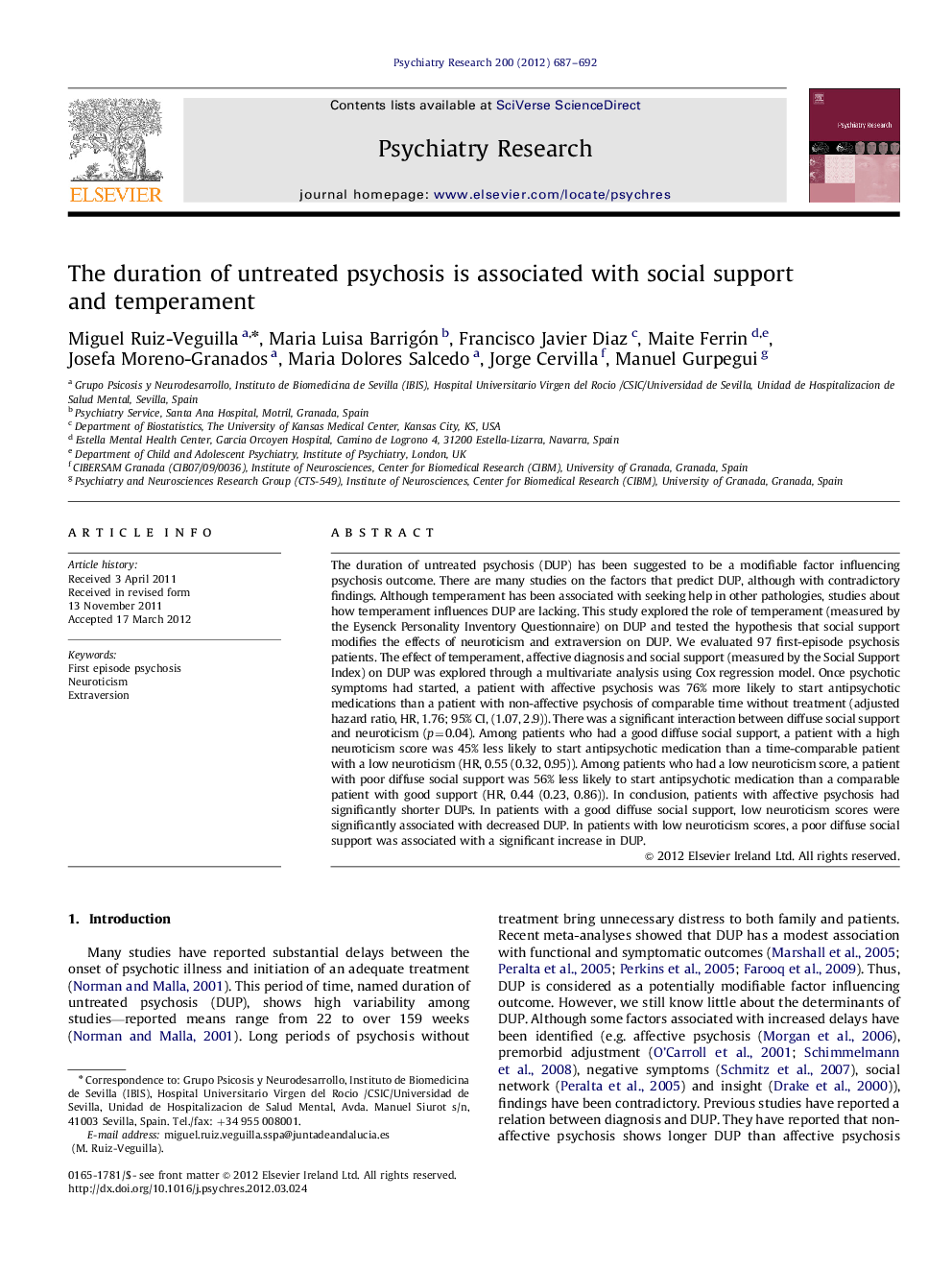| Article ID | Journal | Published Year | Pages | File Type |
|---|---|---|---|---|
| 6816148 | Psychiatry Research | 2012 | 6 Pages |
Abstract
The duration of untreated psychosis (DUP) has been suggested to be a modifiable factor influencing psychosis outcome. There are many studies on the factors that predict DUP, although with contradictory findings. Although temperament has been associated with seeking help in other pathologies, studies about how temperament influences DUP are lacking. This study explored the role of temperament (measured by the Eysenck Personality Inventory Questionnaire) on DUP and tested the hypothesis that social support modifies the effects of neuroticism and extraversion on DUP. We evaluated 97 first-episode psychosis patients. The effect of temperament, affective diagnosis and social support (measured by the Social Support Index) on DUP was explored through a multivariate analysis using Cox regression model. Once psychotic symptoms had started, a patient with affective psychosis was 76% more likely to start antipsychotic medications than a patient with non-affective psychosis of comparable time without treatment (adjusted hazard ratio, HR, 1.76; 95% CI, (1.07, 2.9)). There was a significant interaction between diffuse social support and neuroticism (p=0.04). Among patients who had a good diffuse social support, a patient with a high neuroticism score was 45% less likely to start antipsychotic medication than a time-comparable patient with a low neuroticism (HR, 0.55 (0.32, 0.95)). Among patients who had a low neuroticism score, a patient with poor diffuse social support was 56% less likely to start antipsychotic medication than a comparable patient with good support (HR, 0.44 (0.23, 0.86)). In conclusion, patients with affective psychosis had significantly shorter DUPs. In patients with a good diffuse social support, low neuroticism scores were significantly associated with decreased DUP. In patients with low neuroticism scores, a poor diffuse social support was associated with a significant increase in DUP.
Related Topics
Life Sciences
Neuroscience
Biological Psychiatry
Authors
Miguel Ruiz-Veguilla, Maria Luisa Barrigón, Francisco Javier Diaz, Maite Ferrin, Josefa Moreno-Granados, Maria Dolores Salcedo, Jorge Cervilla, Manuel Gurpegui,
